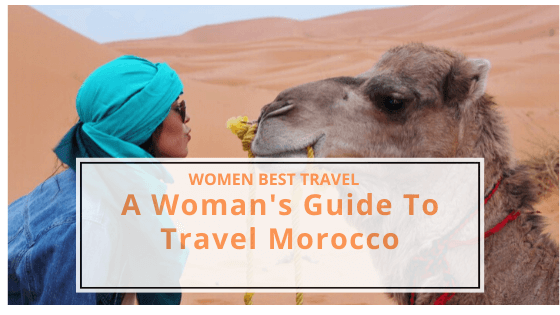Woman’s Guide to Travel Morocco, a North African country bordering the Atlantic Ocean and Mediterranean Sea, is distinguished by its Berber, Arabian and European cultural influences. Marrakesh’s medina, a mazelike medieval quarter, offers entertainment in its Djemaa el-Fna square and souks (marketplaces) selling ceramics, jewelry and metal lanterns. The capital Rabat’s Kasbah of the Udayas is a 12th-century royal fort overlooking the water.
what you need to know before coming to Morocco “a woman’s guide to Travel Morocco”
Languages: The official languages in Morocco are Classic Arabic and Tamazight (Berber), though almost 70% of the population are Amazigh, mostly in rural areas, Sahara and the mountains. However French is taught in the schools and is often used in commerce and business. Around Tangier, there will be many people who can speak Spanish, due to the proximity of Spain and Spain’s past colonisation in the north. Woman’s Guide To Travel Morocco essential arabic language and French
Religion: Morocco is an Islamic country (approximately 98% of the country is Muslim) 1 % among Jewish,Christian and Buddhists. Muslims are expected to pray 5 times per day, with the first call to prayer at dawn (the call to prayer nowadays coming from speakers on the minaret of the mosque. Friday is the Muslim holy day and shops or market stalls are likely to close around mid-day. Muslims are not expected to drink alcohol (though you will find alcohol available, eat pork (becoming available for tourists) During the month of Ramadan (this does not coincide with a particular calendar month and it’s date moves forward approximately 10 days each year), Muslims do not eat, drink or smoke during the day. They are however tolerant of non-Muslims or tourists who feel a need to eat. Those people should however avoid eating or drinking in public view. Most places are likely to be quieter than usual during the day in Ramadan, with many restaurants being closed and shops having removed alcohol from the shelves. Things will however come to life in the evening. read more Morocco Travel Advice
Money: The Moroccan Dirham (DEE-rahm) goes for roughly 9.6 Dirhams (DH) per 1 USD or 10 per 1 euro.
The mosques and Shrines: Most mosques are normally out of bounds to non-Muslims, except Hassan II Mosque at Casablanca which open its doors to visitor tourists at certain times of the day. read more Morocco Travel Advice…
Moroccan Hospitality: Moroccans are a very open minded and hospitable race, it is a tradition to welcome and respect travellers, stranger would be fed and watered in the knowledge that the person offering the hospitality.
Moroccan Hospitality: Moroccans are a very open minded and hospitable race, it is a tradition to welcome and respect travellers, stranger would be fed and watered in the knowledge that the person offering the hospitality
Health: Tampons can be hard to buy in Morocco. Carrefour is the only dependable supermarket to stock them, and even then offers limited choice. You’ll need to take along a plastic bag for disposing of tampons and pads.
Consider What You Wear
Most of the questions female travelers ask me is about Morocco dress code, In Morocco there is no law or dress code, you CAN wear whatever you want especially in big cities. BUT, you also should consider that the less you wear, the more attention you’ll draw, Dress in a way that is respectful to the local population. here is a complete guide to what to wear in Morocco.
